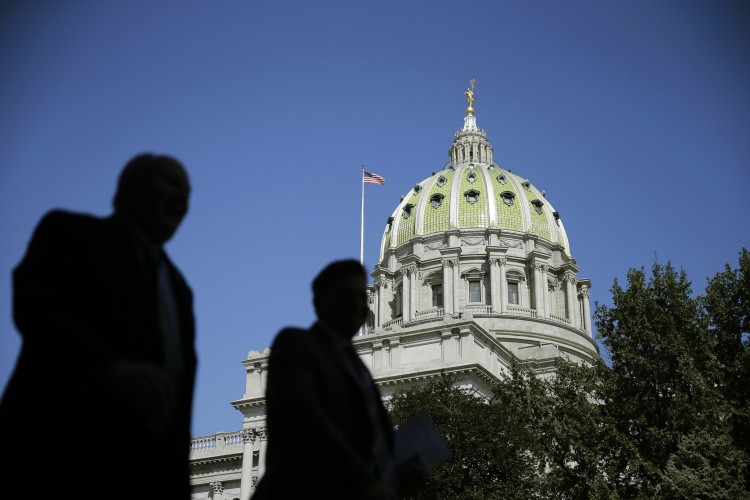
Just in terms of raw politics, our legislature deserves special notice.
In the small-ball world of Harrisburg, it consistently manages to protect itself and its donors, hence its members’ 90 percent-plus reelection rates.
And, with a little more than a week to go before the annual July 1 deadline for a new state budget, it appears poised to reprise its insulated ways.
How?
By looking at deficits and budget holes, totaling in the billions, that it dug itself in years past, and dealing with them in the same manner — namely, digging deeper.
In addition to talk of more gambling and booze licenses, there are reported discussions of borrowing against future money due the state from the 1998 national Tobacco Settlement Agreement.
This is dough the tobacco industry pays in perpetuity to Pennsylvania and other states in exchange for dropped lawsuits seeking tobacco-related health-care costs.
The fund last year brought the state $387 million. The borrowing chatter calls for floating a big bond — as in the billions — secured by future annual payments.
In other words, borrow more in order to stay in business, in order to keep doing what you’re doing: running up debt and interest due.
Is this what a GOP-controlled legislature considers sound fiscal policy?
It’s particularly offensive since, if the state couldn’t meet payments on the bond, the money could come from the annual tobacco allotment.
That allotment, according to House Appropriations Committee data, is used principally for health-related issues, low-income nursing home care, assistance for the disabled, and community services to help senior citizens stay in their homes.
Not exactly a group backed by high-priced lobbyists.
Speaking of which, Gov. Wolf this week issued a statement on “budget priorities” that again included his call for a severance tax on extraction of natural gas in the Marcellus Shale.
Such calls always give insiders a chuckle.
Wolf argues that Pennsylvania’s the only state without such a tax, and says his levy would mean $294 million in new revenue in the coming budget year. The state’s Independent Fiscal Office put the number at $349 million.
Democratic House Appropriations Chairman Joe Markosek just issued a budget brief noting that if the state had enacted a shale tax in 2011 instead of an impact fee, it would have collected much more from the industry, an extra $1.6 billion to date.
Might have made today’s fiscal conditions a tad less dicey.
But that didn’t happen. And a shale tax isn’t happening now.
One big reason is the natural gas industry’s political largesse.
Common Cause Pennsylvania and Conservation Voters of Pennsylvania track industry contributions. Their website, Marcellusmoney.org, says donations to state candidates and PACs since 2007 total close to $10 million.
Among top recipients are House GOP Speaker Mike Turzai and Senate GOP President Pro Tempore Joe Scarnati, each with hundreds of thousands in contributions.
Democrats get gas money, too, just not as much as Republicans.
Some might call $10 million a good investment, especially if it saved the industry $1.6 billion.
Others, such as Conservation Voters director Josh McNeil, call it something else: “Pennsylvania state law doesn’t call this corruption, but I can’t think of another word to describe this bald-faced sellout of the people of Pennsylvania.”
A bit harsh, perhaps. But you get the idea.
And if you’re wondering, “Is it really that simple? Is it really about unimaginative governing reliant on borrowing and protecting donors, on repeatedly seeking new revenue from the same sources: gambling, booze, tobacco use?”
The answer is yes. Because budget math is political math. Because Harrisburg has tunnel vision focused on itself, on its own tiny terrain. Because its principal players are masters of their Puniverse.